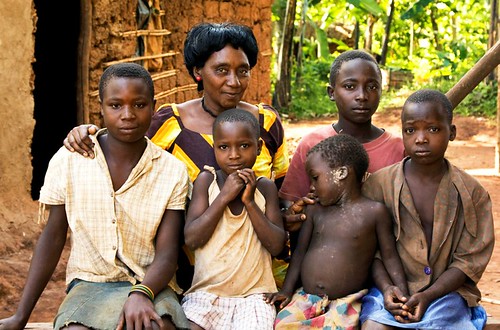Definition: An infectious disease of tropical areas caused by the parasitic infection of red blood cells by a protozoan of the genus Plasmodium, which is transmitted by the bite of an infected female mosquito. Malaria is characterized by recurrent episodes of chills, fever, sweating, and anemia and is endemic in Africa, Central America, and much of Southern Asia and northern
Use in an Original Sentence: I finally do not have malaria.
If I were grading this exercise, I would give it an F for being narcissistic and simplistic. Examples of much better sentences are:
The World Health Organization estimates that malaria infects 300-500 million people each year, and is responsible for one to three million deaths, or one at least every 30 seconds .
Ninety percent of malaria-related deaths occur in Sub-Saharan Africa where it is a major hindrance to economic development; estimated to cost
In 2002, malaria was the fourth cause of children’s death in developing countries, 10.7% of all deaths, after perinatal conditions (conditions occurring at time of birth), lower respiratory infections (pneumonias), and diarrheal diseases.
Malaria is the number one killer of children under 5 years of age in
The majority of adult deaths caused by malaria are due to inability to afford treatment despite the estimated cost for potentially life-saving treatments to be US$0.13 for chloroquine, US$0.14 for sulfadoxine-pyrimethamine, and US$2.68 for a 7-day course of quinine.
Insecticide-treated nets (ITN) are estimated to be twice as effective in reducing the infection and transmission of malaria as untreated nets, and offer greater than 70% protection compared with no net; however, less than 2% of children in urban areas in Sub-Saharan
I first became ill with malaria on May 10, and was hospitalized and treated with oral and IV medications. I recall asking if I should be tested again for the parasites that cause the disease prior to release from the hospital, but was told it was unnecessary. Big mistake. I didn’t argue since I was still very weak and inexperienced with treating and controlling the illness.
For the two weeks following my hospitalization, I had extreme fatigue and was incapable of leaving the house most of the time. I finally went to another hospital in
“Tired.”
“You’re not well.”
She said I tested for +2 malaria, which was actually a higher level of infection than when I was hospitalized. (The infection is on a 0 to +4 scale.) I am not sure why I felt significantly better and had fewer symptoms with more parasites in my blood; there could have been a testing error, the doctor could have been lying to make money off me, my body could have been adapting to the parasites, or some combination of the three. In any event, I was put on oral Quinine for a week, which is about twice as long as the normal treatment course and is difficult to manage.
Quinine affects your hearing and is extremely dehydrating and tiring. It requires constant consumption of fluids, especially juice. After going without juice and only drinking water for about four hours the second day of treatment, I was suddenly so exhausted I could barely lift my hand. My family quickly gave me fresh passion fruit juice and sliced pineapple, and I soon recovered my strength. I left the house Thursday for the first time in a week to walk a few dozen yards to the shops. You can’t do much but lay down when on the drug.
The symptoms of malaria include symptoms of anemia (light-headedness, shortness of breath, fatigue, etc.), as well as fever, chills, joint and muscle paint, headache, nausea, vomiting, diarrhea, and in very advanced stages, abnormal posturing (arms involuntarily lifting), retinal damage, convulsions, coma and death. In the non-advanced stages it resembles a nasty flu virus, only worse, the fatigue overwhelming and the duration much longer. There is also a certain indescribable misery that overcomes you, that once you’ve had it, you know it; malaria.
Africans inevitably contract malaria over the course of their lives, but develop some immunity to the parasites and serve as asymptomatic carriers. Sometimes an African will have a high infection rate, say +3, and only have fatigue and joint pain. Many of my adult friends here say it’s been years, or can’t even remember the last time they were ill with malaria, although they surely have been infected from time to time since.
Since immunity develops with exposure, children and non-immune adults, such as this lucky mzungu, are at an increased risk for developing severe malaria as are those with compromised immune systems like the elderly and HIV patients. The combination of children being weaker and unable to communicate their symptoms puts them at the highest risk for mortality by far. As two of my italicized sentences above state, malaria is responsible for about 11% of all child deaths in developing countries around the world and 30% of child deaths here in Uganda, a rate similar to other Sub-Saharan African countries.
The numbers of those that die from the disease is staggering, as is its relationship with poverty. Malaria is both a symptom and a cause of destitution in
Many of you have emailed to ask how I am doing and I really appreciate your concern. There have been some horrible moments these past few weeks, during which I banished all thought of anything to do with Africa, and concentrated on memories with my friends and family in







I am so relieved that you are finally feeling better. What an ordeal. You had us all on the edge of our chairs, a ticket in our pocket to rescue our mzungu from Tierrasanta.
ReplyDeleteluv, Barbara
Glad your better!
ReplyDelete-h